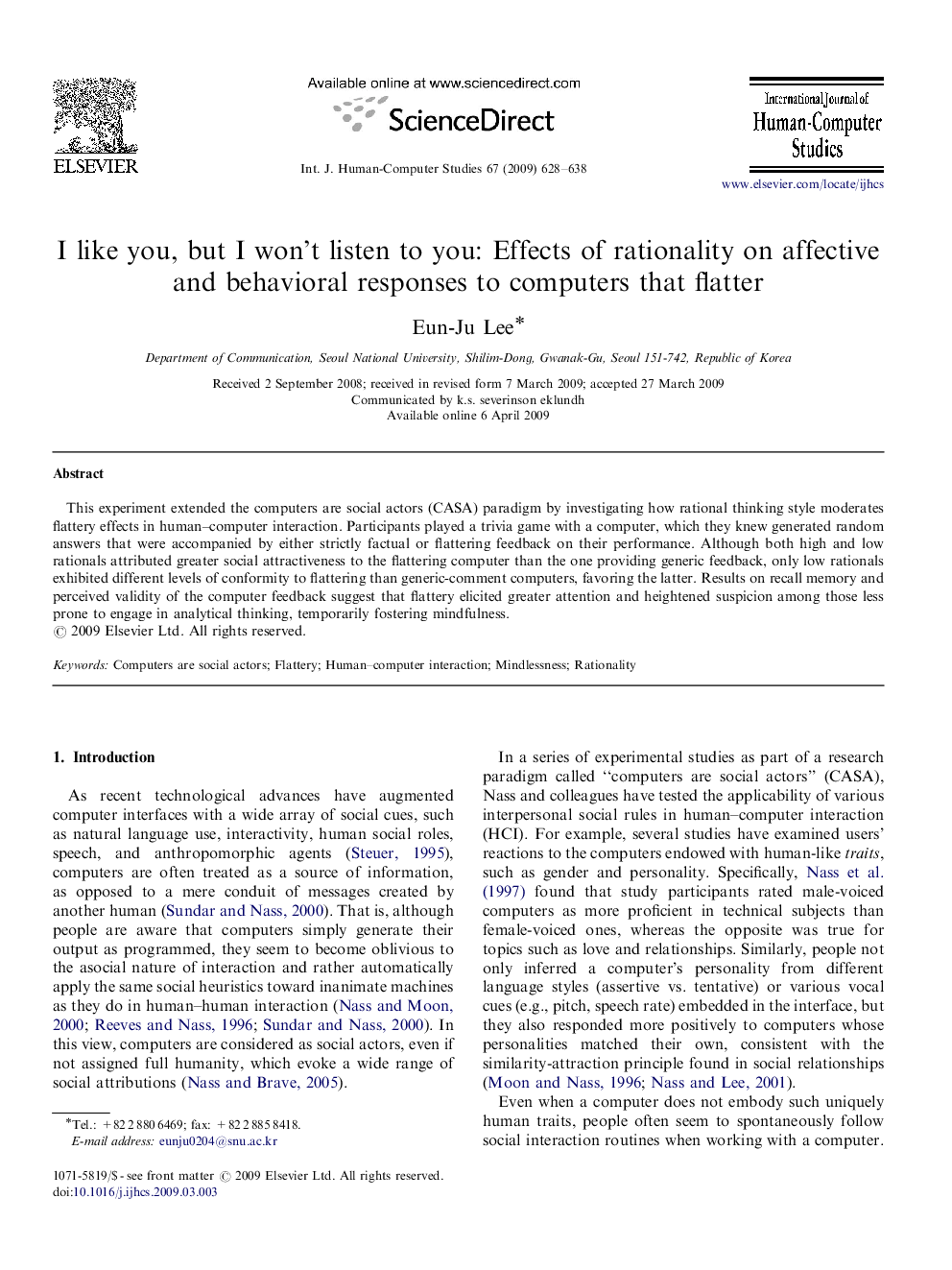| Article ID | Journal | Published Year | Pages | File Type |
|---|---|---|---|---|
| 400972 | International Journal of Human-Computer Studies | 2009 | 11 Pages |
This experiment extended the computers are social actors (CASA) paradigm by investigating how rational thinking style moderates flattery effects in human–computer interaction. Participants played a trivia game with a computer, which they knew generated random answers that were accompanied by either strictly factual or flattering feedback on their performance. Although both high and low rationals attributed greater social attractiveness to the flattering computer than the one providing generic feedback, only low rationals exhibited different levels of conformity to flattering than generic-comment computers, favoring the latter. Results on recall memory and perceived validity of the computer feedback suggest that flattery elicited greater attention and heightened suspicion among those less prone to engage in analytical thinking, temporarily fostering mindfulness.
